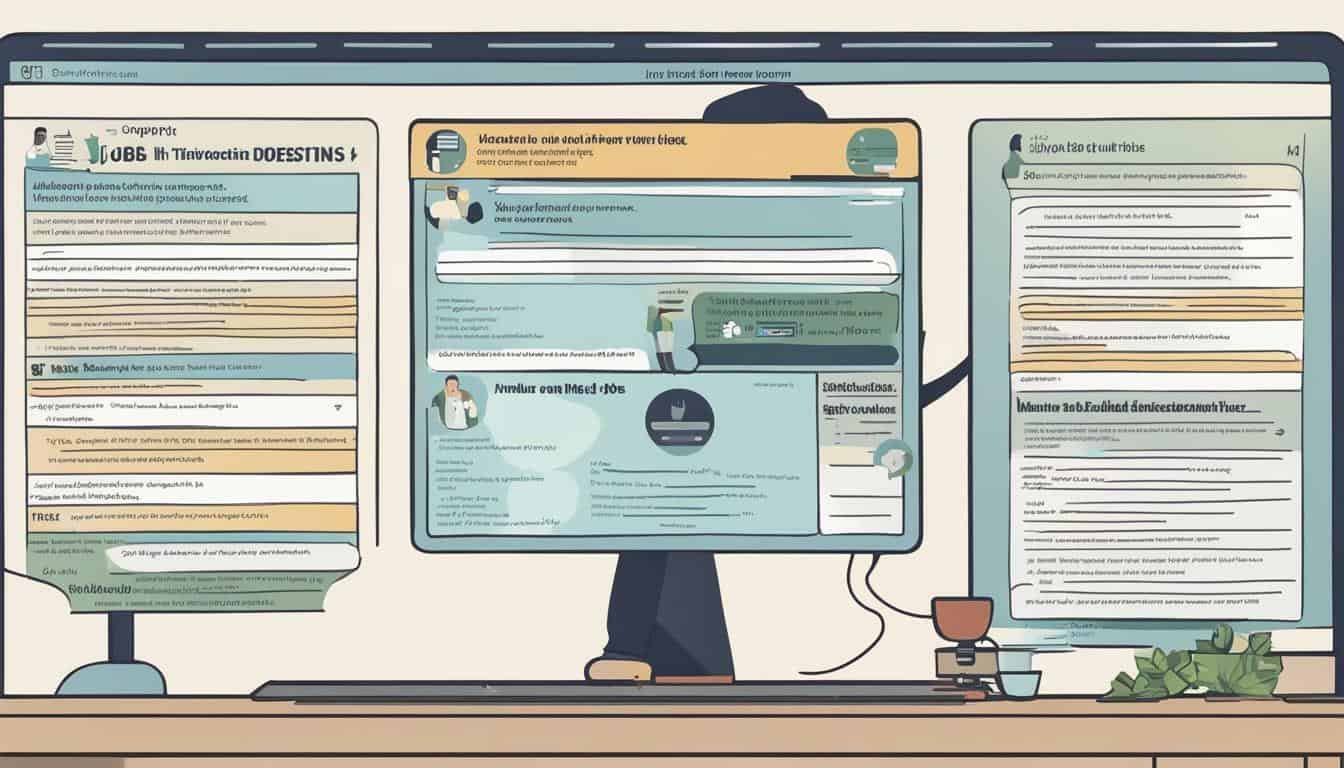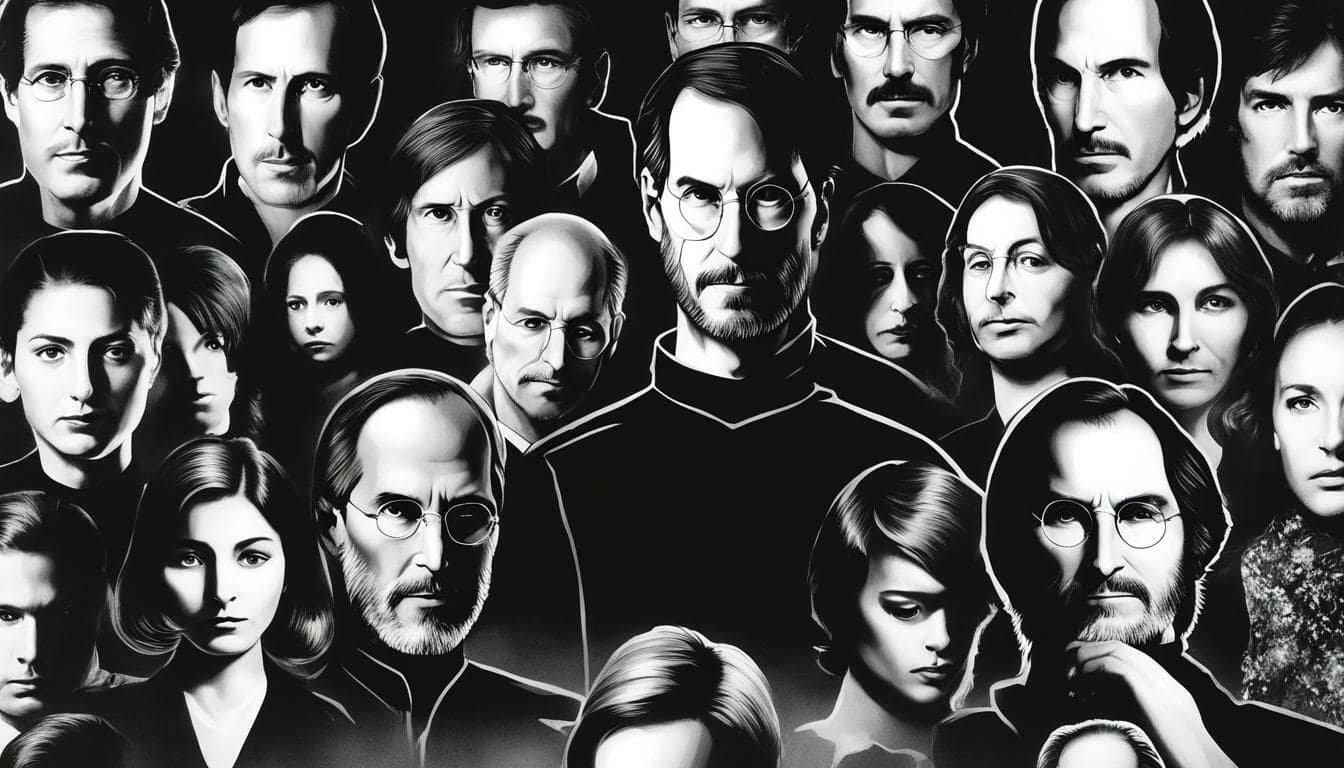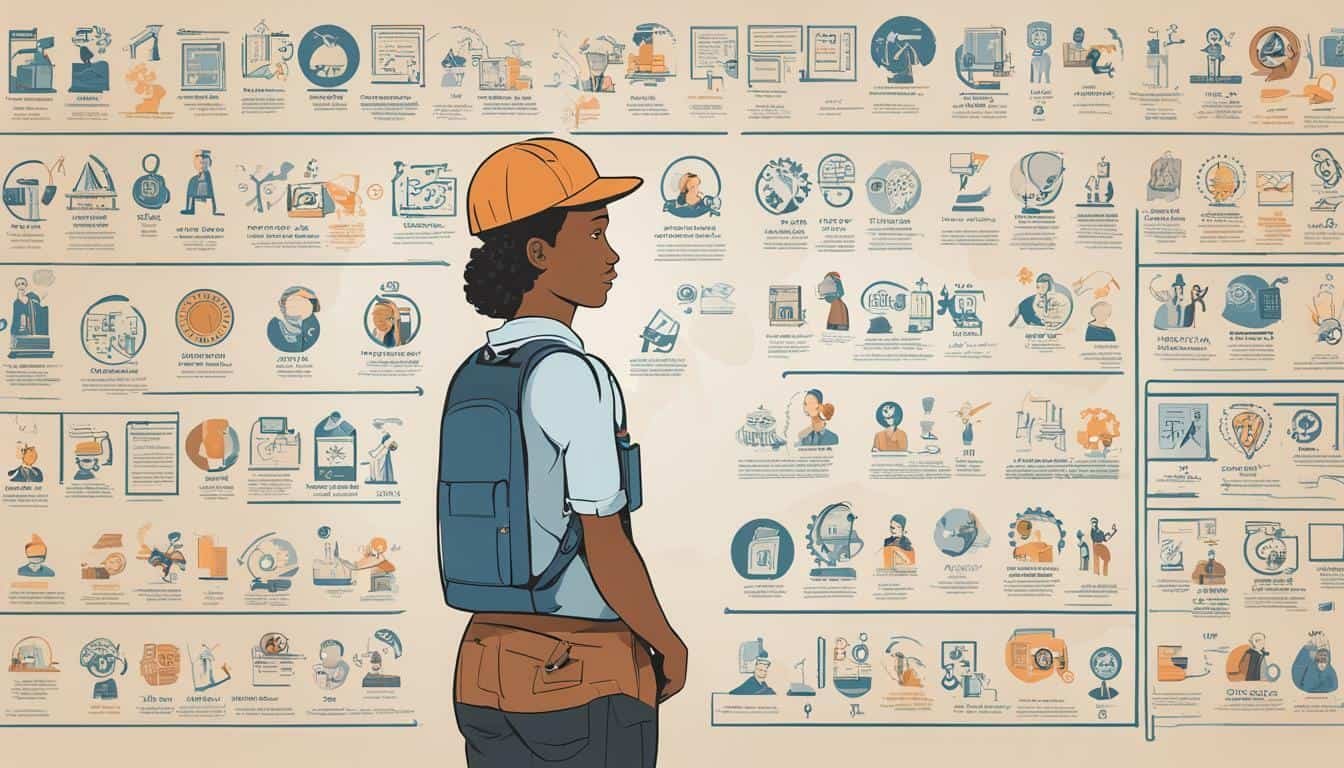If you have a passion for writing and a knack for technical concepts, a career as a technical author may be perfect for you! As a technical author, you will have the opportunity to create user manuals, software documentation, and other technical materials for a variety of industries. Along with a fulfilling career, technical authorship offers competitive salaries and opportunities for growth.
In this article, we will provide you with valuable insights on how to become a successful technical author. From developing your writing skills to acquiring technical knowledge and mastering documentation tools, we will cover all the essential strategies and skills needed to excel in this field. Let’s get started!
Key Takeaways:
- A technical author creates technical documentation for various industries.
- Technical authorship offers competitive salaries and opportunities for growth.
- Developing writing skills, acquiring technical knowledge, and mastering documentation tools are essential skills for a technical author.
What Does a Technical Author Do?
As a technical author, your main responsibility is to create clear and concise technical documentation. Technical communication is the art of conveying complex information in a way that is easy to understand for the intended audience. Technical documentation comes in many different forms, from user manuals and software documentation to technical guides and instructional videos.
Creating effective technical documentation requires a deep understanding of the subject matter and the ability to communicate that knowledge effectively. You will need to be able to explain technical concepts in simple terms that can be easily understood by people with varying levels of technical proficiency. This requires a strong grasp of technical communication, which is the art of conveying complex information in a way that is easy to understand for the intended audience.
Whether you are documenting software, hardware, or a complex system, your documentation must be accurate, comprehensive, and easy to follow. Technical documentation should be designed to help users understand how to use a product or system, troubleshoot problems, and get the most out of their experience. To achieve this, technical authors must be proficient in technical documentation, which involves creating, designing, and publishing technical documents, such as user manuals, software documentation, and technical specifications.
Effective communication is essential in technical authorship because you need to understand what your users need and want. This requires the ability to communicate effectively with both technical and non-technical audiences. Technical authors must be proficient in technical communication, which involves creating, designing, and publishing technical documents, such as user manuals, software documentation, and technical specifications.
Ultimately, your goal as a technical author is to create clear, concise, and comprehensive technical documentation that helps users achieve their goals. Whether you are creating user manuals, software documentation, or technical guides, your documentation should be designed to help users understand how to use a product or system and get the most out of their experience.
Developing Your Writing Skills
As a technical author, your writing skills are your most crucial asset. By developing a unique writing style, mastering the art of information architecture, and focusing on content development, you can create compelling and informative technical documentation that engages your readers.
Mastering Your Writing Style
Developing a distinctive writing style is essential for technical authors. Your style should be clear, concise, and easy to understand. Avoid using jargon or technical terms that your audience may not be familiar with. Instead, use simple language and break down complex concepts into easy-to-digest chunks of information.
One way to develop your writing style is to read technical documentation from other writers and identify what you like and dislike. Incorporate the elements you enjoy into your writing and avoid the mistakes you notice in other documents.
Mastering the Art of Information Architecture
Information architecture is the process of organizing and structuring information in a way that makes it easy to find and understand. As a technical author, you must master this process to create documents that are easy to navigate and understand.
To create effective information architecture, start by identifying the most critical information your audience needs to know and organizing it into sections or chapters. Use headings, subheadings, and lists to break down information into manageable chunks and make it easier to scan for key details.
Focusing on Content Development
Content development is the process of creating and refining the content of your technical documentation. To create high-quality content, start by understanding your audience’s needs and preferences. Consider their technical proficiency level and use language they can understand.
When developing content, aim for clarity, accuracy, and completeness. Check your document for spelling and grammar errors before sending it for publication, as these errors can undermine your credibility and confuse your audience.
Developing your writing skills takes time and practice, but by focusing on your writing style, mastering information architecture, and content development, you can create compelling documents that engage and educate your readers.
Acquiring Technical Knowledge
As a technical writer, it is essential to have a solid understanding of the subject matter you are writing about. Acquiring technical knowledge can be a challenging process, but it is an essential step towards becoming an effective technical author.
One effective method for acquiring technical knowledge is to work closely with subject matter experts (SMEs) who possess the necessary technical expertise. SMEs can provide valuable insights into complex technical concepts and help you translate them into user-friendly documentation.
Additionally, conducting thorough research and staying up-to-date with the latest industry trends and best practices can help you improve your technical knowledge. You can attend industry conferences, read technical publications, and take online courses to enhance your technical knowledge and stay current with the latest developments in the field.
| Pro tip: | Make sure to ask relevant questions and take notes when working with SMEs. This will help you gain a deeper understanding of the subject matter and ensure accuracy in your documentation. |
|---|
Acquiring technical knowledge is a continuous process, and it requires dedication and effort. By investing time and effort into improving your technical knowledge, you can produce high-quality technical documentation that is accurate, informative, and user-friendly.
Understanding Your Target Audience
As a technical author, your primary goal is to create user-friendly documentation, such as user manuals and software documentation. To achieve this, you must understand and cater to the needs of your target audience.
Start by identifying the level of technical proficiency your audience possesses. This will help you determine the appropriate level of detail and complexity to use in your documents. You can gather this information through surveys, user testing, and feedback from customer service teams.
Another crucial aspect of understanding your target audience is mastering information architecture. This involves organizing information in a way that is easy to navigate and understand. Consider the hierarchy of information and how it relates to user tasks. Use clear headings, subheadings, and bullet points to make the content scannable and digestible.
Mastering Documentation Tools
As a technical author, you will be producing a wide variety of documentation such as software documentation, user manuals, and technical communication. To effectively create these documents, it’s essential to have a good understanding of the various documentation tools available. With an ever-growing number of options on the market, it can be challenging to determine which tool will best suit your needs.
To make the selection process easier, you should consider your unique requirements and choose tools that align with your objectives. Some popular documentation tools to consider include Adobe Technical Communication Suite, MadCap Flare, and Microsoft Office. With these tools, you can streamline your technical communication process and create professional-quality documents with ease.
It’s also important to keep in mind that mastering documentation tools is an ongoing process. The more you work with these tools, the more proficient you will become. Don’t be afraid to experiment with different tools and explore their various features to discover what works best for you.
Ultimately, the goal is to use the tools that help you create high-quality software documentation, technical communication, and user manuals that clearly convey your message to your audience.
Collaborating with Subject Matter Experts
As a technical author, you will often need to collaborate with subject matter experts to gather the necessary information for your documentation. This can be a challenging task, but with the right approach, it can enhance the accuracy and effectiveness of your writing.
Firstly, it’s important to establish a good working relationship with your subject matter experts. Maintaining open communication and mutual respect can go a long way in ensuring a successful collaboration.
Secondly, it’s crucial to prepare yourself before meeting with the experts. This includes researching the topic, preparing a list of questions, and practicing active listening skills. By doing so, you can ensure that you gather accurate and relevant information.
Thirdly, it’s important to be aware of the experts’ level of technical proficiency. Adjusting your language and communication style to match their level of understanding can help you effectively convey complex technical concepts.
Lastly, it’s vital to give credit where credit is due. Acknowledging the contributions of subject matter experts in your documentation can not only enhance the accuracy of your work, but also showcase your professionalism and appreciation for their expertise.
By following these strategies, you can effectively collaborate with subject matter experts and create technical documentation that accurately reflects their knowledge and expertise. As a technical author or writer, working closely with those who have subject matter expertise is a key component of your role and can help you write more effectively.
The Importance of Continuous Learning
As a technical author, it’s crucial to stay up-to-date with the latest trends, technologies, and best practices. Continuous learning can help you maintain your competitive edge, improve your writing skills, and keep pace with the evolving demands of the industry. Here are some strategies to help you stay ahead of the curve:
- Read industry publications and blogs: Subscribe to publications and blogs that specialize in the areas you write about. This can help you stay informed on new trends, technologies, and techniques and provide inspiration for your own work.
- Attend workshops and conferences: Workshops and conferences offer opportunities to learn from experts and connect with other technical authors. Look for events that cover topics relevant to your work, and make sure to network with other attendees.
- Work on personal projects: Challenge yourself to take on personal projects that allow you to explore new technologies and techniques. Creating a blog or website, or contributing to an open-source project, can help you develop new skills and demonstrate your expertise to potential clients or employers.
- Keep your software skills up-to-date: Technical authors often work with specialized software, which can change rapidly. Make sure to stay familiar with the latest versions of the tools you use and seek out training opportunities for new software you may need to use in the future.
- Join professional organizations: Joining a professional organization, such as the Society for Technical Communication, can provide opportunities for networking, professional development, and access to job listings.
By dedicating time and effort to continuous learning, you can develop the skills and knowledge you need to excel as a technical author and remain competitive in the field.
Building a Portfolio and Networking
As a technical writer or technical author, building a strong portfolio and networking with industry peers can set you apart in a competitive job market. Your portfolio should showcase your best work and demonstrate your skills in technical writing, editing, and document design. Including a professional bio and headshot can also help establish your personal brand.
Networking with other technical writers and subject matter experts can provide valuable opportunities for collaboration and professional growth. Attend industry conferences and events, join online writing groups and forums, and connect with others on LinkedIn or other professional networking sites. Cultivating strong relationships with others in your field can open doors to new job opportunities and help you stay up-to-date on the latest industry trends and technologies.
Navigating Challenges and Overcoming Obstacles
As a technical writer, you may face a variety of challenges in your role as a documentarian. These challenges can range from time management issues to difficulties grasping complex technical concepts. Fortunately, with the right strategies and mindset, you can overcome any obstacle that comes your way.
Managing Time and Deadlines
One common challenge faced by technical authors is managing time and meeting project deadlines. To stay on track, consider breaking down larger projects into smaller, more manageable tasks. This can help you prioritize what needs to be done first and ensure you’re making steady progress towards the final product. Additionally, using time management tools like calendars, reminders, and to-do lists can help you stay organized and on top of your workload.
Handling Complex Technical Concepts
Another obstacle that technical authors may encounter is grappling with complex technical jargon and concepts. To overcome this challenge, it’s important to take the time to thoroughly research and understand the subject matter you’re working with. Additionally, using visual aids like diagrams, graphs, and videos can help simplify complex ideas and make them easier to understand for your target audience.
Ensuring Effective Communication within Teams
Technical writing often involves working collaboratively with subject matter experts and other team members. To ensure effective communication, establish clear communication channels and protocols from the outset of any project. This can include regular check-ins, status updates, and feedback sessions. Additionally, using collaboration tools like shared documents and project management software can help keep everyone on the same page.
By adopting these strategies and developing your writing skills, you can tackle any challenges that come your way as a technical author. With persistence and dedication, you can overcome even the most daunting obstacles and deliver high-quality technical documentation that informs and engages your readers.
Conclusion
Congratulations! You have completed our guide on unlocking your potential as a technical author. By now, you have learned the importance of strong writing skills and technical knowledge, as well as the various tools and strategies for creating user-friendly technical documentation.
Remember to always prioritize understanding your target audience and collaborating effectively with subject matter experts. Keep learning and staying up-to-date with the latest trends and technologies in the field to maintain your competitive edge.
Building a portfolio and networking are also crucial for establishing your professional brand and connecting with potential clients or employers. Always strive to overcome challenges and obstacles, such as managing time and deadlines, handling complex technical concepts, and ensuring effective communication within teams.
By following the strategies outlined in this guide, you are well on your way to becoming a successful technical author and telling compelling tech stories that engage and educate your readers. Best of luck on your journey!
How Can I Begin My Career as a Technical Author in the United States?
If you are wondering how to kickstart your career as a technical author in the United States, start by exploring the job market for next technical author jobs in usa. Research and apply for entry-level positions in the field, gain relevant experience, and enhance your technical writing skills to increase your chances of success.
How Can I Excel in a Work from Home IT Company as a Technical Author?
To excel in work from home it companies as a technical author, stay disciplined and organized. Set clear goals and manage your time effectively. Embrace technology tools that enhance remote collaboration and communication. Regularly upskill yourself to stay updated with the latest trends and technologies. Maintain an open line of communication with your team and constantly seek feedback to improve your work. As a technical author, your writing should be clear, concise, and easy to understand, catering to both technical and non-technical audiences.
FAQ
Q: What is a technical author?
A: A technical author is a professional who creates technical documentation, such as user manuals and software documentation, to communicate complex technical concepts in a clear and concise manner.
Q: What skills are required to excel as a technical author?
A: To excel as a technical author, you need strong writing skills, the ability to understand complex technical concepts, and the willingness to continuously learn and adapt to new technologies and industry trends.
Q: What types of technical documentation do technical authors create?
A: Technical authors create various types of technical documentation, including user manuals, software documentation, and instructional guides, to provide users with the information they need to use a product or service effectively.
Q: How can I develop my writing skills as a technical author?
A: To develop your writing skills as a technical author, focus on creating a unique writing style, mastering the art of information architecture, and emphasizing content development to ensure your documents are clear, concise, and user-friendly.
Q: How do I acquire the necessary technical knowledge as a technical author?
A: Acquiring the necessary technical knowledge as a technical author involves understanding complex technical concepts and effectively translating them into user-friendly documentation. Continuous learning and collaboration with subject matter experts can also help expand your technical knowledge.
Q: Why is understanding the target audience important for technical authors?
A: Understanding the target audience is crucial for technical authors as it allows them to tailor their documentation to meet the needs, preferences, and technical proficiency of their readers. Effective information architecture plays a vital role in creating user-friendly documents.
Q: What documentation tools can technical authors use?
A: Technical authors can utilize various documentation tools and software to streamline their technical communication process. It is essential to select tools that align with your needs and facilitate efficient collaboration and document management.
Q: How can I effectively collaborate with subject matter experts as a technical author?
A: To collaborate effectively with subject matter experts, establish a strong working relationship, gather accurate information through interviews and research, and maintain clear communication channels. Collaboration enhances the accuracy and overall quality of your technical documentation.
Q: Why is continuous learning important for technical authors?
A: Continuous learning is vital for technical authors to stay updated with the latest industry trends, technologies, and best practices. It helps enhance writing skills, expand technical knowledge, and maintain a competitive edge in the field.
Q: How can I build a portfolio and network as a technical author?
A: Building a portfolio as a technical author involves showcasing your work, establishing your professional brand, and networking with industry peers and potential clients or employers. Online platforms, industry events, and professional organizations can be valuable resources for networking opportunities.
Q: What are some common challenges faced by technical authors?
A: Technical authors often face challenges such as managing time and deadlines, handling complex technical concepts, and ensuring effective communication within teams. Strategies for overcoming these challenges include proper time management, seeking clarification from subject matter experts, and practicing effective communication skills.




0 Comments